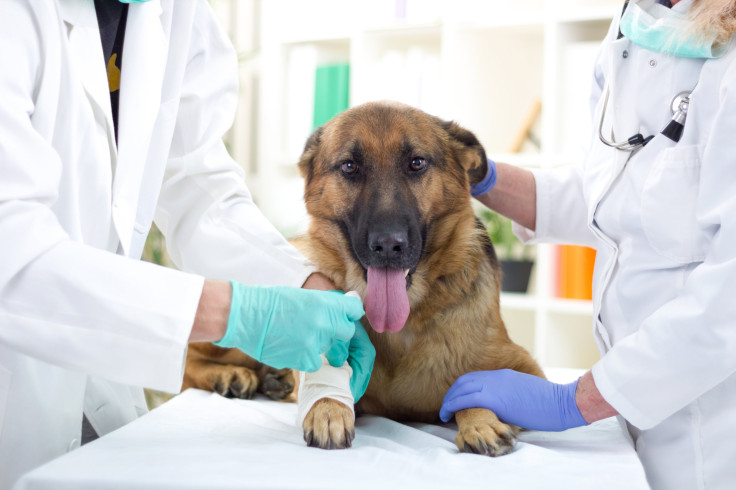Dog Vaccines Now Being Skipped, Too: Is The Anti-Vaxx Trend Shifting?

As anti-vaccination fears continue to spread among some people, the trend appears to be transferring over to pet owners and their dogs, too. According to New York Magazine, some pet owners refuse to vaccinate their puppies, paving the way for a greater risk of doggie disease outbreaks like canine distemper and parvovirus, both of which are severe illnesses that can be fatal.
When puppies are first taken to the vet, they’re given a string of shots — but veterinarians are noting there’s been an uptick in people refusing to get their dogs vaccinated.
"I would say, from a subjective personal point of view, that often, issues in veterinary medicine spill over from human medicine," Brennan McKenzie, a veterinarian blogger and former president of the Evidence-Based Veterinary Medicine Association, told the magazine. "Over the last 10 or 15 years, there has been an increase in mostly unfounded concerns about vaccine safety for people — and that, I think, has raised people’s awareness and level of concern about vaccinations for their pets."
The problem is there is very little to no data on vaccine rates for pets — unlike the tracking of human vaccination rates, which makes it clear when they’re either dropping or rising. However, even if the drop in dog vaccinations is miniscule, it can have an impact by placing pets in danger of severe diseases.
“The fewer animals that are getting the vaccine, the greater the likelihood that you’re going to have a firestorm if something that is that highly communicable comes along,” Christopher Brockett, president of the New York State Veterinary Medical Society, told New York Magazine.
But there’s another side to the story: perhaps it’s not that dog owners are refusing to vaccinate, but rather that they’re being told they’re over-vaccinating. Plenty of vets warn against combination shots, which, unlike the one-stop-shop rabies vaccine, are a cocktail of ingredients and vaccines in one shot. Combo shots, sometimes referred to as “mumbo jumbos,” are considered a form of over-vaccination because they must be given annually, compared to the rabies vaccine which is good for 12 to 15 years. These combination shots unecessarily expose the dog to adverse reactions like skin diseases, autoimmune diseases, and allergies, according to Dogs Naturally Magazine.
Of course, while there may be some legitimate debate on vaccinating dogs, no evidence exists that human vaccines, like the one for measles, is actually bad for you, despite the beliefs of some parents who believe it's linked to autism and other diseases.



























